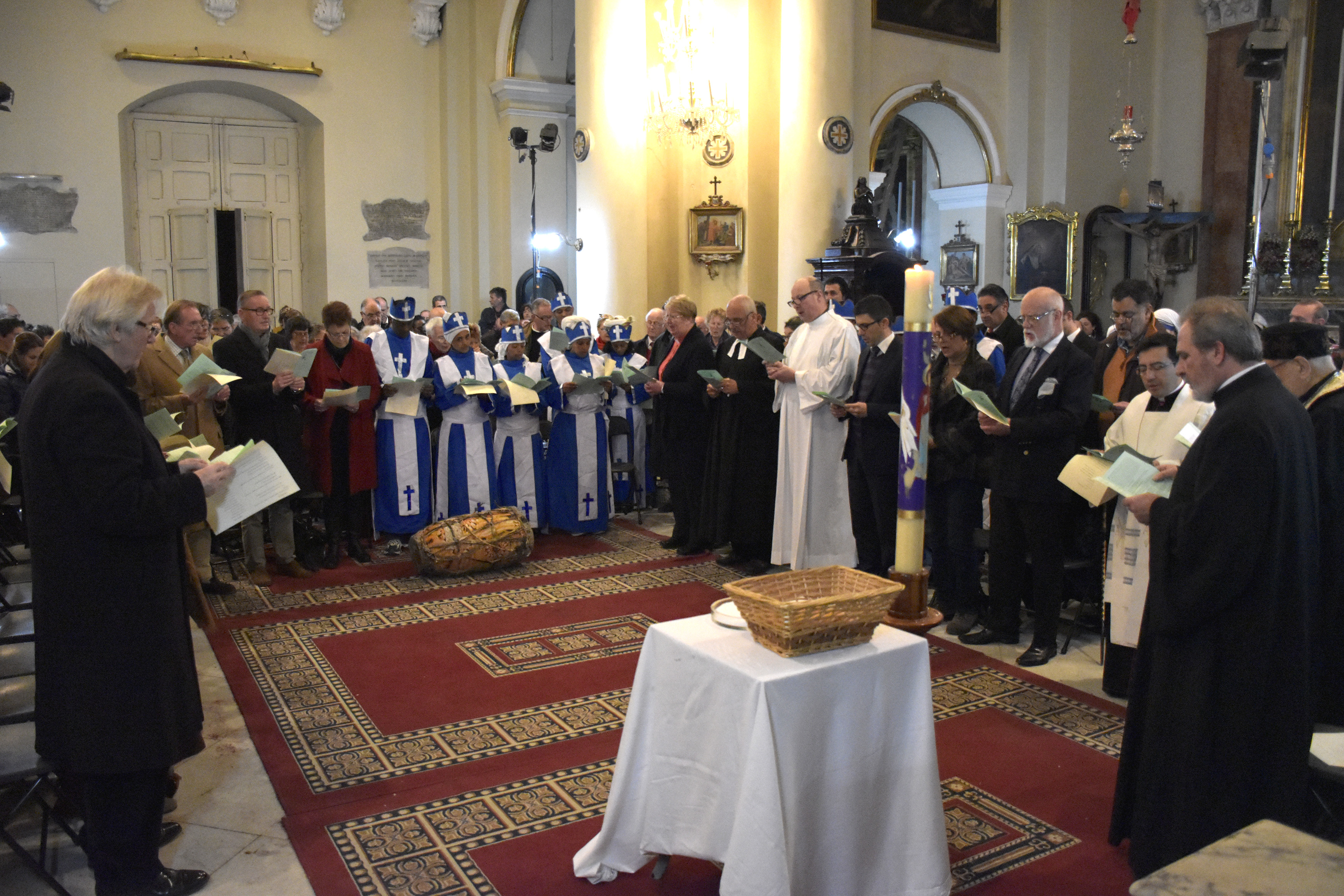-

-
This week, on two separate evenings, the Otto Philharmonic Orchestra of Berlin, will be commemorating the fifth centenary of the Protestant Reformation. It was 31st October 1517 when the Augustinian friar, Martin Luther, nailed a list of ninety-five grievances to the door of the church of Wittenberg Castle in Germany. That was the beginning of a long series of events which unfortunately lead to separation and bitterness among Christians, wars – in particular the Thirty Years’ War (1618-48) – and hate-filled suspicion.
It is a misnomer to talk of “a fifth-centenary celebration”. There is nothing to celebrate in what Luther and many others did, because it led to separation and bloodshed. Several ecumenical texts state that “no one who is theologically responsible can celebrate the division of Christians from one another”. We’d rather talk of a commemoration. The year 2017 sees the first centennial commemoration of the Reformation to take place within the context of ecumenical relations and dialogue. Indeed, 2017 also marks fifty years of Lutheran-Roman Catholic dialogue.
Luther himself rarely used the term “reformation”. In an explanation, he himself penned, of the mentioned ninety-five theses, Luther affirmed: “The Church needs a reformation which is not the work of man, namely the pope, or of many men, namely the cardinals … but it is the work of the whole world, indeed it is the work of God alone. However, only God who has created time knows the time for this reformation”. Perhaps certain aspects came five hundred years too early.
World-wide events to commemorate the events of 1517 kicked off, last October, at Lund, in Sweden. Pope Francis himself participated. Countless symposia, discussions, books and articles, documentaries, online material, etc have already seen the light of day and will continue to flow endlessly in the remaining months of the current year.
Ecumenical reflective encounters between Lutherans and Catholics are meant to find their genesis in the one common water of baptism through which all Christians have become members of the body of Christ. Lutherans and Catholics are being called to express a shared joy in the Gospel, to carry out an authentic evaluation of the past, to show regret for past insults and mutual condemnations and to pray in earnest for Christian unity.
A joint document, From Conflict to Communion, published in 2013 by Catholics and Lutherans in preparation for this year, tackles a very wide spectrum of issues, also highlighting a good number of examples where, after all, both sides were using a different kind of language when, in actual fact, they were saying the same thing. This was indeed grossly unfortunate. To make matters worse, politics entered the arena, and certain German 16th-century principalities and dukedoms instrumentalized the theological debate for their own petty short-sighted political ambitions. The mentioned document goes so far as acknowledging a “Catholic confession of sins against unity”, as well a “Lutheran confession of sins against unity”.
Five ecumenical imperatives bring the balanced and far-sighted 2013 document to a conclusion: (1) Catholics and Lutherans should always begin from the perspective of unity, rather than from division, and thus be in a position to strengthen what is held in common; (2) Lutherans and Catholics are to seek to make their encounters mutually transformative; (3) Both Catholics and Lutherans are to renew their commitment to work for visible unity and to strive towards this goal; (4) They should jointly rediscover the power of the Gospel for contemporary humanity; (5) Together, Lutherans and Catholics are called to witness to God’s mercy as they proclaim the Good News and serve their sisters and brothers in today’s world.
On Thursday 20 April, at 7.30pm, the Otto Philharmonic Orchestra of Berlin will be performing Symphonies 2 and 4 by Robert Schumann, at St Paul’s Pro-Cathedral, Valletta. On Saturday 22 April, at 7.15pm, the same Orchestra will be performing parts from Johann Sebastian Bach’s Cantata BWV 79 during an Ecumenical Service at Mdina Cathedral. The Malta Philharmonic Orchestra is cooperating and supporting the Otto-Sinfoniker. The general public is invited to participate in the commemoration.
On 10 May 2017, at 6.00pm at its Valletta Campus, the University of Malta is organizing a Commemoration of the Reformation with the participation of learned speakers from various Faculties. Furthermore, the Faculty of Theology is holding a two-day conference on the same theme at the end of October. The mentioned insightful text, From Conflict to Communion – long available online – has now been translated to Maltese and will be published in the coming weeks.
Message written by Fr Hector Scerri, President, Diocesan Ecumenical Commission and Chairperson, ‘Christians Together in Malta’.





